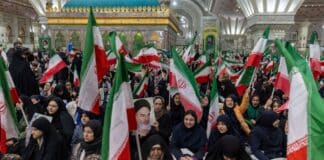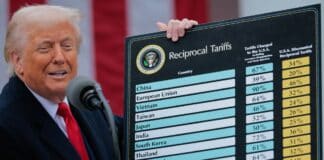The U.S. intelligence community assesses that Russia and Ukraine may see more benefits in continuing the war rather than agreeing to a full settlement, contradicting President Donald Trump’s efforts to secure a swift resolution. The report also warns of a potential nuclear threat from Russian President Vladimir Putin, citing his military setbacks and Ukraine’s strikes within Russia as destabilizing factors.
Director of National Intelligence Tulsi Gabbard presented the assessment Tuesday at the Senate Intelligence Committee’s hearing on the annual Worldwide Threat report, where she and CIA Director John Ratcliffe testified. The intelligence report states that while both sides have discussed partial ceasefires, their leaders currently view a prolonged war as less risky than an unsatisfactory agreement.
The Trump administration has been working toward a full ceasefire by April 20, but Ukrainian and European officials have expressed skepticism, arguing that Putin’s actions indicate a strategy aimed at delaying negotiations. Despite this, Moscow and Kyiv agreed Tuesday to partial ceasefires, allowing safe civilian navigation in the Black Sea and establishing measures to prevent strikes on energy infrastructure in both nations.
The intelligence assessment notes that Putin, buoyed by battlefield momentum, may feel comfortable exercising “strategic patience.” Meanwhile, Ukrainian President Volodymyr Zelenskyy faces political pressure at home, fearing that conceding territory or neutrality to Russia without firm security guarantees from the West could provoke domestic unrest and future vulnerability.
At the same time, the report highlights the potential consequences of an extended war. A protracted conflict could further strain the Russian economy and increase the risk of unintended escalation with Western nations. For Ukraine, the uncertainty surrounding continued Western aid could weaken its long-term position. Analysts also warn that Russia, benefiting from a war of attrition, is positioned to gradually erode Ukraine’s military standing regardless of Western support.





